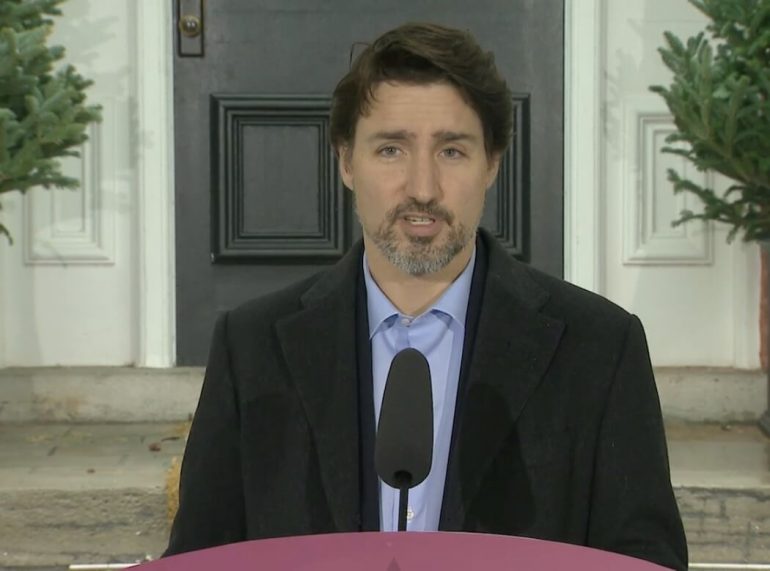On Friday, Prime Minister Justin Trudeau announced that the Government of Canada is extending the Canada Emergency Wage Subsidy (CEWS) for another three months.
The wage subsidy program will now be available until the end of August. The news comes one week after Trudeau announced that the program was set to be expanded beyond June, though did not provide detail at the time.
The Canada Emergency Wage Subsidy will now be available until the end of August.
Trudeau also announced on Friday that over the next month the federal government plans to assess and make any necessary adjustments to the wage subsidy program. He pointed specifically to the 30 percent revenue decline criteria as an area the government plans to look at. “Meeting a decline shouldn’t be a barrier to growth” as businesses begin to re-open, Trudeau said.
During a ministers’ briefing later on Friday, Finance Minister Bill Morneau noted that the new regulations for the CEWS are effective immediately. He also noted that the program is now more open to organizations including tax-exempt indigenous-owned businesses, journalism and amateur sports organizations, as well as partnerships consisting of non-eligible employers as long as those members are not majority owners.
The finance minister noted that extending the CEWS to the end of August is about supporting individual Canadians and giving businesses “a greater sense of confidence.” He added that making potential future adjustments to CEWS is meant to encourage employers to hire workers.
Dan Kelly, president of the Canadian Federation of Independent Business (CFIB), called an “extended and simplified wage subsidy” an important measure in helping Canadian small businesses.
RELATED: Here are the final details on the Canada Emergency Wage Subsidy
To date, around 120,000 employers have applied for the CEWS for around 2 million employees. On Friday, Trudeau encouraged employers that have yet to apply to do so given the extended availability.
The CEWS offers a subsidy of 75 percent of an eligible employee’s weekly earnings, to a maximum of $847 per employee per week to eligible employers, for up to 12 weeks. The funding is retroactive to March 15 and will now be available until the end of August.
Since the wage subsidy program was launched, members of the Canadian startup and tech community have criticized the federal program’s revenue criteria. Originally, the CEWS required a 30 percent year-over-year revenue decline for each of the three months that it was available. That criteria was later relaxed to a 15 percent revenue decline for March and opened up the opportunity to compare revenue to January and February 2020 rather than a year-over-year.
A survey conducted by the Council of Canadian Innovators found the expanded criteria passed by Parliament in early April could allow more startups to access the subsidy. The survey found that nearly 40 percent could be ineligible for the wage subsidy, compared to 94 percent of companies that said they would be ineligible prior to the expanded criteria.
Even since the CEWS offered expanded criteria, the Canadian tech sector continued to see companies making pandemic-related layoffs. CEOs that BetaKit spoke with noted not being eligible for the program and in a number of cases would not commit to plans to rehire employees that had been temporarily laid off.
Responding to a question on Friday on whether the CEWS has helped companies re-hire employees at the rate the government had hoped, Trudeau noted that companies are still facing uncertainty and “trying to juggle” various factors that “they have very little window into.” He emphasized the plan over the next month to work with industry as well as labour relations and stakeholder groups “to get it right.”
RELATED: Government to expedite approvals for temporary foreign workers during COVID-19 pandemic
Kelly stated the CFIB is also happy to hear the government is open to changes to the CEWS requirement to demonstrate a 30 percent drop in gross revenue. He noted that the test “is one of the reasons the take up of the program has been far less than expected” and emphasized it could cause “a particular problem” as the Canadian economy moves to the recovery phase.
Morneau stated that he believes the extensions will give employers a greater sense of confidence and more employers will decide that the program is “appropriate” for their businesses.
The prime minister also announced on Friday $450 million to help researchers and institutions, including those associated with universities and health research institutions. The funding is meant to help those groups that have been affected by the economic impacts of COVID-19 to maintain salaries and essential research-related activities. The government will provide a wage subsidy of up to 75 percent per individual, with a maximum of $847 per week.


